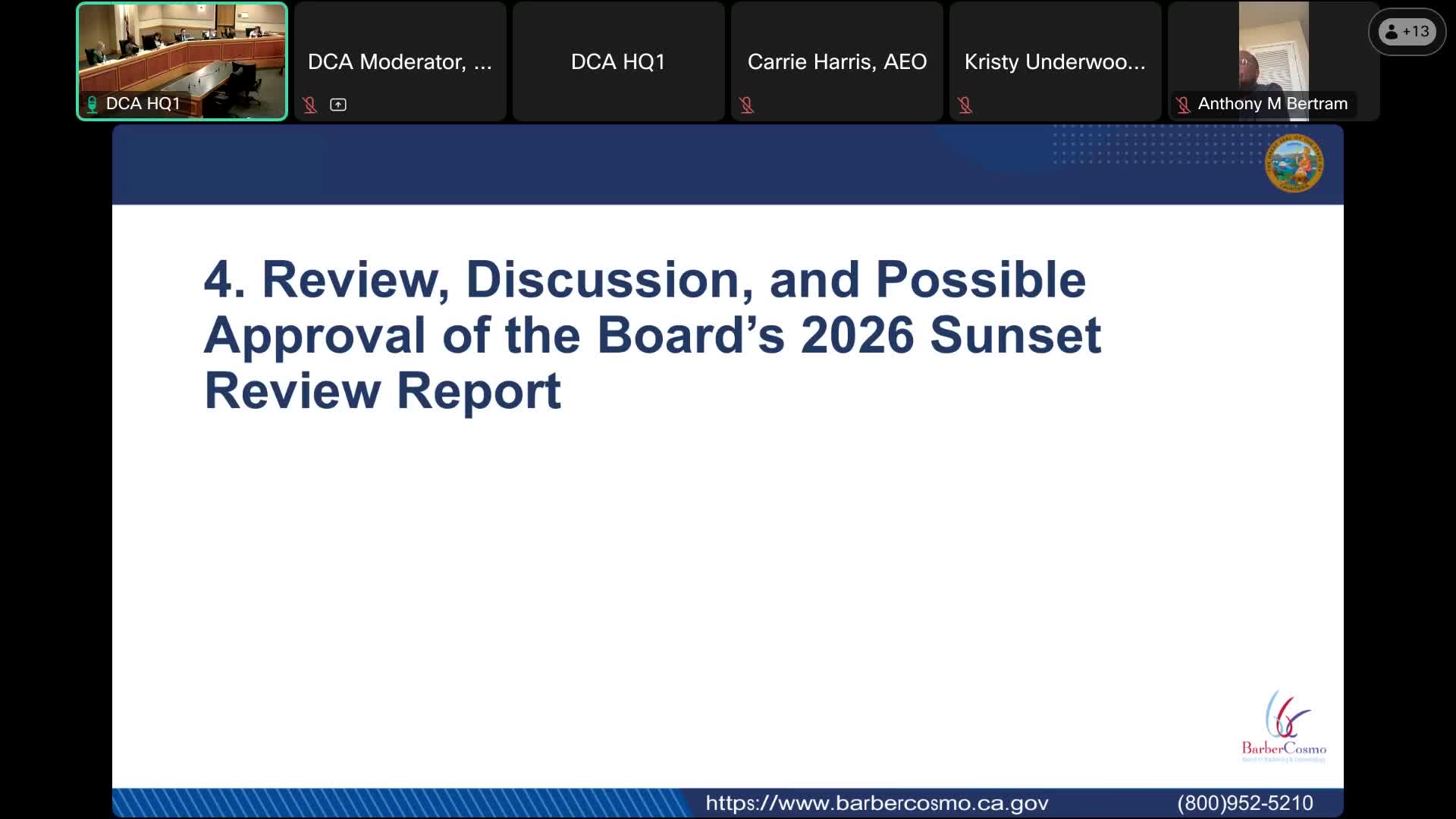Apprenticeship oversight and fees under scrutiny after board finds widespread variation; notices and hearings underway
Get AI-powered insights, summaries, and transcripts
Subscribe
Summary
The Board of Barbering and Cosmetology used its Oct. 21 meeting to spotlight concerns about apprenticeship program sponsors that charge tuition-like fees, franchise approvals to satellite operators, and potential fraud; staff reported notices to show cause and adjudications in some cases.
The Board of Barbering and Cosmetology used its Oct. 21 meeting to spotlight problems in barbering and cosmetology apprenticeship programs, including wide variation in fees charged to apprentices, franchised program models, and enforcement actions against program sponsors.
Board staff told members that apprenticeships have been drifting from the traditional "earn-while-you-learn" model: several program sponsors and satellite operations have charged tuition and other multi-thousand-dollar fees that go beyond a tools/kit cost. Staff said some kit costs commonly run into the low thousands and that the board's review found sponsor charges that include tuition, administrative and other fees. "Apprenticeship programs are not intended to have a tuition for the apprentice," staff said in the report; staff also said the board is seeing fees described as "tuition, books, various other fees." Staff will remove inaccurate example numbers and refine language before finalizing the apprenticeship report.
Enforcement and hearings: staff summarized active enforcement. The board has issued multiple notices to show cause to program sponsors and referred some cases to the Attorney General's Office; one program sponsor lost approval after an adjudicated hearing. Staff cautioned those processes are expensive: the board incurred attorney-general costs for contested proceedings and will continue to pursue enforcement in cases of fraud or serious regulatory violations.
Proposed legislative requests: the board identified several statutory changes it may seek, including clarifying that apprentices must be employees (with payroll evidence), establishing approval and renewal fees for program sponsors, prohibiting program sponsors from franchising or lending their approval to other entities, and creating formal disciplinary authority to sanction or bar sponsors and host establishments that violate the law. Staff also proposed that establishments employing apprentices must offer the full scope of services appropriate to the apprentice's training and maintain workers'compensation insurance.
Public comment and sponsor perspectives: program sponsors and school representatives were invited to speak. Gracie Young, a long-time program sponsor in the Bay Area, said many satellite operators were charging students because they were not receiving reimbursement from the responsible local education agencies (LEAs) or sharing RSI funds. Program sponsors said funding and reimbursement structures differ across LEAs and that state reimbursement and LEA partnerships were key to keeping apprentice costs low.
Board direction: members asked staff to finalize the apprenticeship report for the November meeting and recommended the board pursue statutory clarifications to stop fee abuses and strengthen enforcement. Staff said other agencies (Department of Industrial Relations, Division of Apprenticeship Standards, and LEAs) will be part of future conversations about funding and enforcement.
Ending: The board concluded Oct. 21 by requesting a refined apprenticeship report and specific legislative language to present in November; staff also said they will provide documentation of enforcement actions and cost estimates for adjudications.
